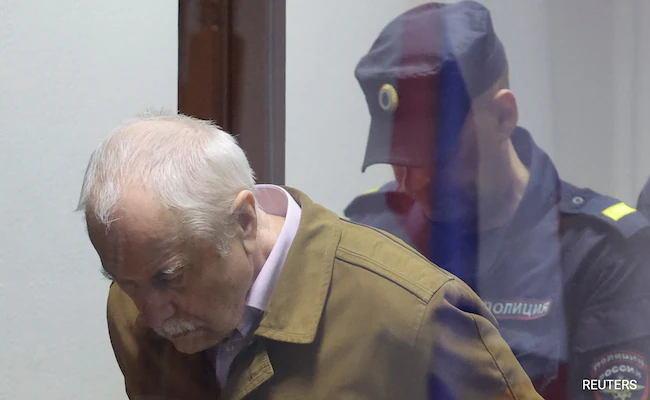Russian President Vladimir Putin frequently boasts that his country is leading the world in developing hypersonic weapons, which travel at more than five times the speed of sound. However, a troubling trend has emerged alongside these advancements: a series of arrests and treason charges against Russian physicists working on the science underpinning these technologies. Since 2015, at least 12 scientists associated with hypersonic research have been arrested, with many facing severe consequences.
Allegations and Closed-Door Trials
The Russian Federal Security Service (FSB) has spearheaded these arrests, alleging that the scientists committed high treason by passing state secrets to foreign countries. These cases, held behind closed doors due to their classified nature, often lack transparency, making it difficult to ascertain the precise accusations against the scientists. The Kremlin has maintained that “the accusations are serious” but refrains from further comment due to the involvement of special services.
The Case of Vladislav Galkin
One of the notable cases involves Vladislav Galkin, a 68-year-old academic from Tomsk, whose home was raided in April 2023. Armed men seized papers containing scientific formulae, and Galkin was remanded in court alongside another scientist, Valery Zvegintsev, with whom he had co-authored several papers. Galkin’s wife, Tatyana, has been forbidden from discussing his case publicly, and she has told their grandchildren that he is on a business trip to shield them from the harsh reality.
Fundamental Research, Not Weapons Development
Colleagues and defense lawyers argue that these scientists were not involved in weapons development but rather in fundamental research on physical processes, such as how metals deform at hypersonic speeds or the effects of turbulence. This sentiment is echoed by lawyer Yevgeny Smirnov, who notes, “This is not about making a rocket, but about the study of physical processes.” Smirnov, who defended scientists accused of treason before moving to Prague, believes the arrests are politically motivated, aimed at creating the impression that foreign spies are targeting Russian missile secrets.
Fear and Uncertainty in the Scientific Community
The impact of these arrests is profound, leading to a climate of fear and uncertainty within the scientific community. An open letter penned by employees from the Institute of Theoretical and Applied Mechanics (ITAM) in support of their arrested colleagues emphasized this, stating, “We just don’t understand how to continue doing our job. What we are rewarded for today… tomorrow becomes the reason for criminal prosecution.” The letter, now removed from the institute’s website, highlighted the scientists’ contributions and loyalty to their country, underscoring that their publicly shared work had been thoroughly vetted for restricted information.
High-Profile Cases and Broader Implications
This pattern of arrests includes several high-profile cases. Anatoly Maslov, an elderly physicist, was sentenced to 14 years in a penal colony for treason, while Alexander Kuranov, a former director of a research enterprise for hypersonic systems, received a seven-year sentence. Dmitry Kolker, a specialist at the Institute of Laser Physics, was arrested while in the late stages of pancreatic cancer and died two days later. These cases, critics argue, reflect an atmosphere of “spy mania and isolationism,” as described by Sergei Davidis of the Memorial human rights center.
Stifling Innovation and Academic Exchange
The arrests have broader implications for Russia’s scientific community. As scientists are expected to publish internationally and collaborate with foreign colleagues, the fear of prosecution stifles academic exchange and innovation. The ITAM scientists warned that talented young researchers are leaving science, further hindering progress.
Human Rights Concerns and Political Motivations
Human rights groups see these arrests as a tactic to bolster the FSB’s image and satisfy political demands. Smirnov believes the FSB aims to flatter President Putin by portraying itself as successfully protecting state secrets. In some cases, the FSB offers leniency in exchange for confessions and the implication of others, creating a coercive environment for the accused.



